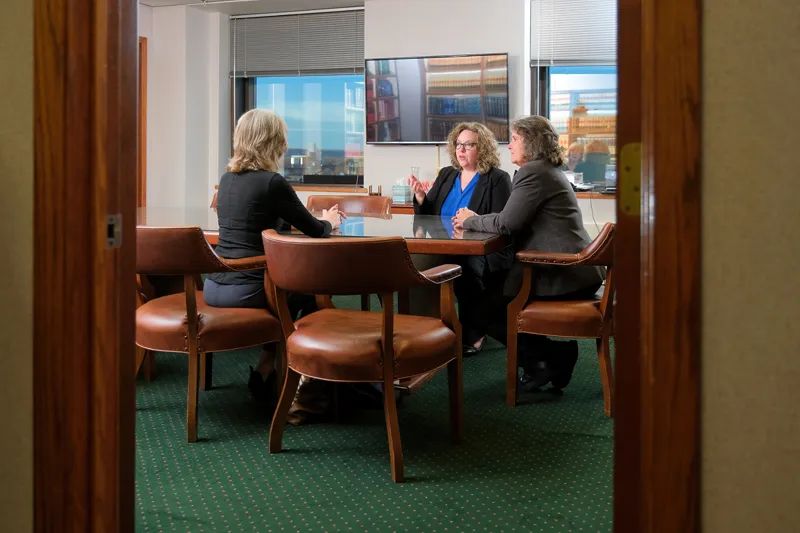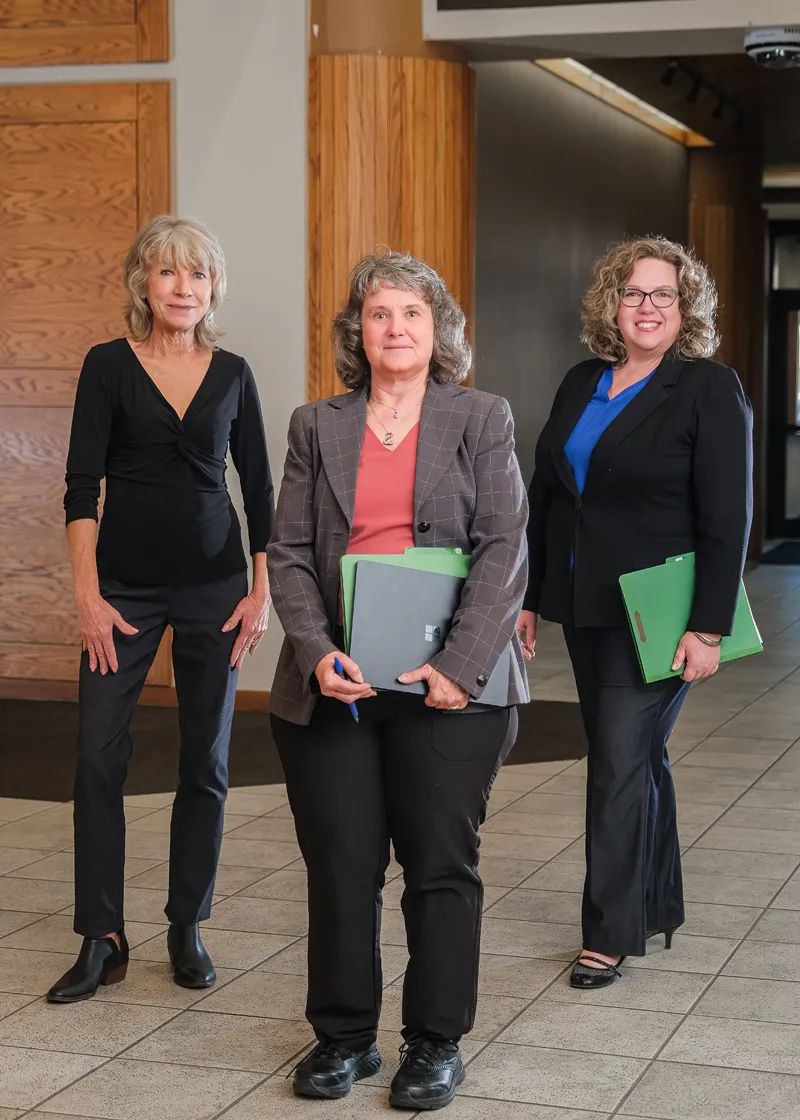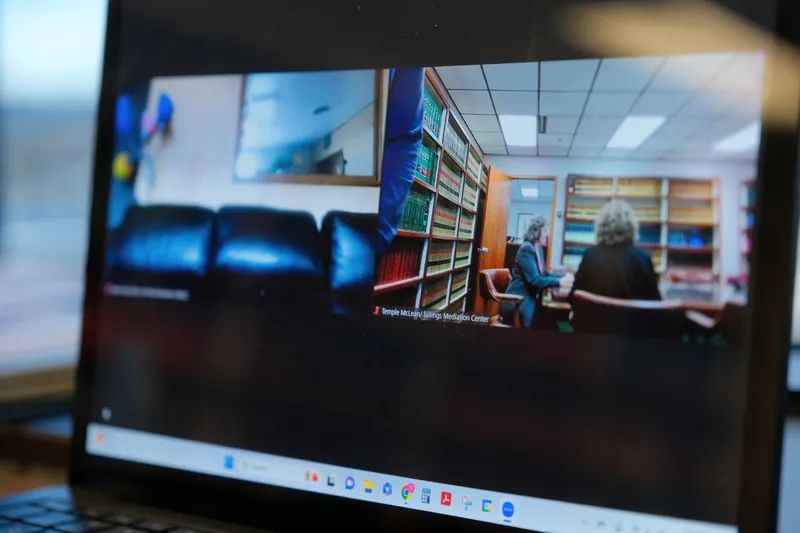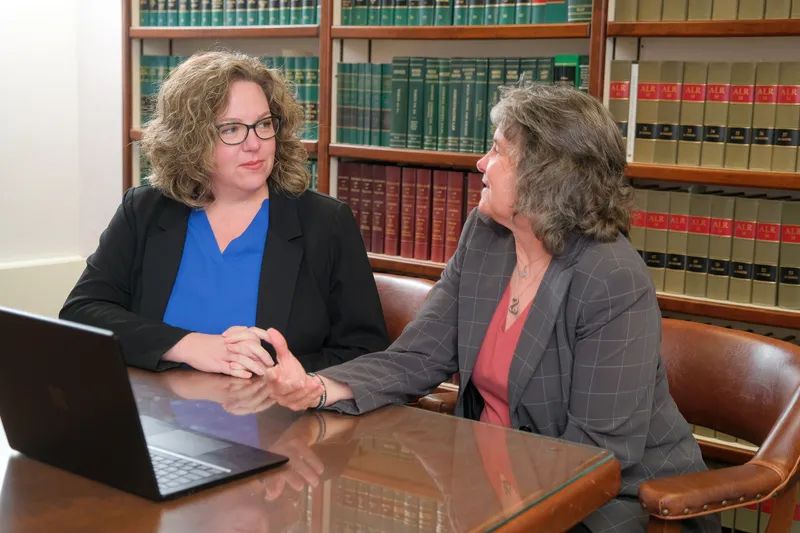
Mending Through Mediation
Temple McLean helps others deal with conflict without the court system
Courtroom drama in movies and television sets the stage: Someone’s been unforgivably wronged, and they shout, with their fist in the air, “I’ll see you in court,” or “You’ll hear from my lawyer.” We know it’s not real life, but that’s often the only solution people consider in times of conflict. What if, in real life, there was a quicker, less expensive and more creative solution?
There is. It’s mediation, and it’s gaining traction in Billings thanks to the nonprofit Billings Mediation Center and the work of its founder Temple McLean.

Mediation is a semi-formal decision-making process that is facilitated by a third, neutral party. They help those dealing with conflict have difficult conversations, make some compromises and come to an agreement that works for everyone.
“We don’t make decisions for the parties,” says Temple, an experienced mediator. “People come voluntarily to the mediation table. The only thing we ask in return is that they act in good faith.”
Temple has hundreds of success stories to her credit.
Not long ago, Temple worked with two business associates who experienced a rift in their relationship over a botched project. One thought the other owed him money, and when he asked for it, his colleague refused. The relationship dissolved and eventually ended up in small claims court, where the judge asked the men to try mediation. With Temple’s guidance, the two men came to the table, settled their dispute, and even met for a drink at a local tavern after the mediation session was done.
Not only was the issue resolved, their relationship was mended. That’s not something that’s going to happen in court.
“Feelings matter in mediation,” Temple says. “All that matters in court is the law.”

Under the umbrella of the Billings Mediation Center is the Conflict Resilience Project. It’s funded by a grant from the Montana Justice Foundation, and the goal of the project is to connect people of all income levels with mediation services, train mediators and provide volunteer mediation services for Yellowstone County Justice Court, and other courts in surrounding areas.
Yellowstone County Justice Court refers small claims court and civil matters where people are representing themselves to Temple and her team of up-and-coming mediators. Conflict Resilience Project mediators mediate about 35 cases a year. Not all end in an agreement, but those that do save the court about $1,200 a year.
The process lifts a significant burden from the courts and provides a learning space for the project’s hopeful mediators, who need to gain hands-on experience for certification. Through the Conflict Resilience Project, mediators in training are required to log 50 hours of training in all facets of mediation. Once the course is completed, they will exceed the requirements for certification from the national Certified Facilitative Mediators Association (CFMA).
“I want to help people get the best possible training,” Temple says. “My goal is to mentor other mediators, set the standard high and eventually pass the baton.”

Temple has been a part of the field of law since her 20s, working as a paralegal alongside lawyers in firms that specialized in family law. In 2008, she read an article in American Bar Journal about an attorney who worked with both parties in a divorce to create a “post-nuptial” agreement, essentially an amicable divorce. She wondered if that wasn’t something she could do with her legal experience.
Temple started researching how to become a mediator. It wasn’t easy finding standardized training in Montana, but in 2011 she met Art and Kitty Lusse, founders of Montana Mediators, based in Billings. They were seasoned family mediators and introduced Temple to the art. Although Montana Mediators has since closed its doors, Art and Kitty offered their guidance and Temple worked with Project Settle in Bozeman for hands-on experience. She achieved her certification from CFMA in 2014.
“I didn’t just want to log the hours, I wanted the experience,” Temple says.
From the beginning, Temple wanted to help families. She has a heart – and a knack – for helping estranged couples develop and amend parenting plans. Although it’s difficult, emotional work, she knows the children are the ones who ultimately benefit.
“The settlement is not the only goal,” Temple says. “The real success is in whether or not they complied with it, and we like to follow up.”

Confidentiality is a cornerstone of the mediation process, and everyone is required to adhere to set ground rules. The mediator follows a five-step process. Frequently Temple works with a co-mediator, and often, it’s one of her cohorts in the Conflict Resilience Program. It helps “balance” the table, Temple says.
“We have a duty to give them a quality process and that is to be neutral,” she adds.
Since the pandemic, most mediations are done via Zoom, and most mediation sessions last three to six hours. Temple admits that it can be exhausting for all involved, but the outcome is usually worth the effort.
While Justice Court provides a stream of mediation opportunities, many more come from folks simply looking to settle disputes without the hassle of attorneys or the court system. They commonly include family disputes and workplace and professional disputes.
“If there are hurt feelings it’s usually out of miscommunication,” Temple says. “We can help sort that out.”
Good mediators have a love for communication, and an ability to remain neutral in conflicts. They have a knack for suspending judgment and a desire to learn everyone’s story better.
“People who are drawn to this are people who are feelers to an extent,” says Nikki Schaubel, a mediator in training. “Being neutral doesn’t mean you don’t feel anything. You have to feel everything.”
Nikki, a communication consultant, marketing professional and coach, thought the opportunity to become a mediator would be interesting and bring some additional diversity to her resume. What she didn’t expect was how much she has come to enjoy mediation. While Temple enjoys family mediation, Nikki is finding her niche in workplace mediation.
Dealing with conflict is difficult for almost everyone. However, mediation may be the best, if not the only, place where some conflicts can be resolved. No matter how heated or emotionally charged the mediation may become. Temple and her colleagues are unflappable. They believe in the process and know there’s always a possibility that a resolution can be reached that works for everyone.
“Every mediation I walk into, I always watch for the opportunity for transformation,” Temple says. “An apology, a handshake, any conciliatory gesture, is meaningful.”
TO LEARN MORE about the Billings Mediation Center, visit billingsmediationcenter.org











